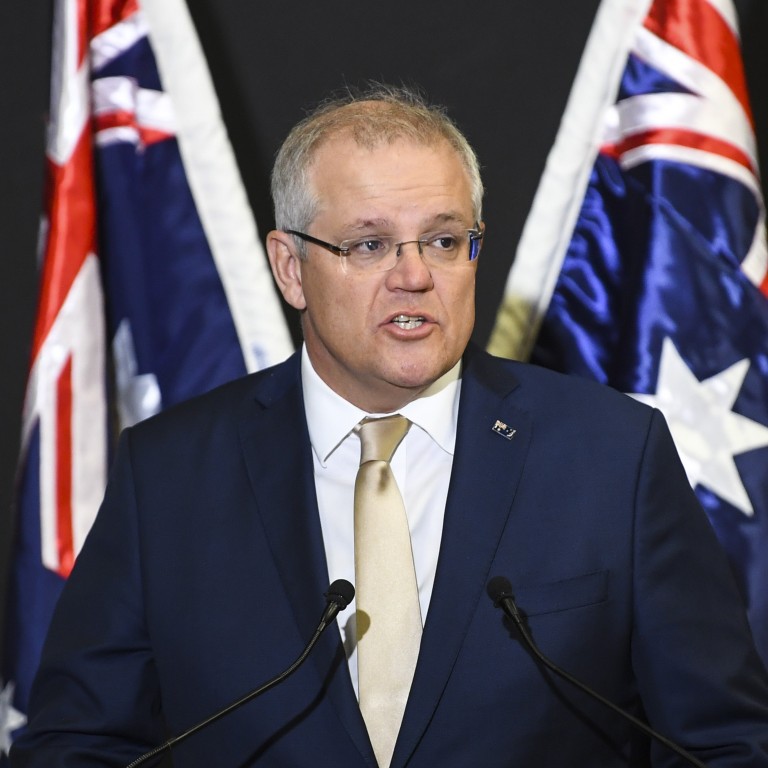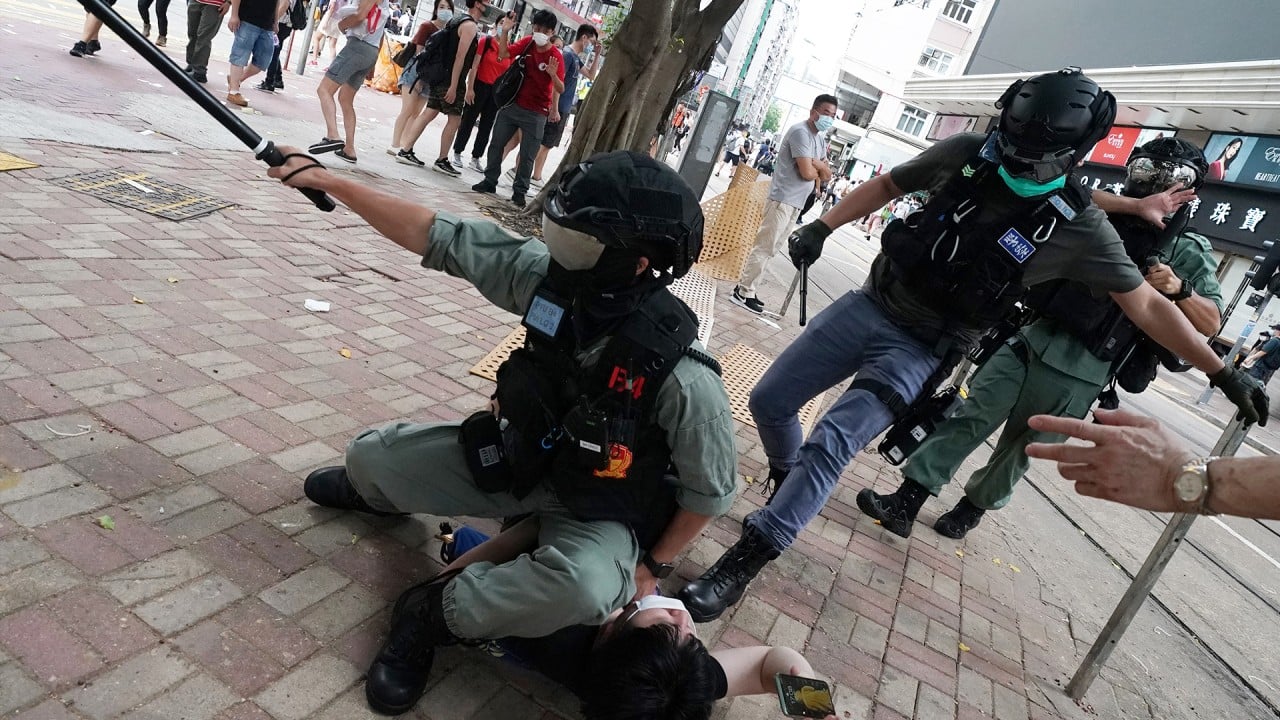
Australia considers offering safe haven to Hongkongers as national security law takes effect
- Scott Morrison said the situation in the city was ‘very concerning’ and the country was ‘prepared to provide support’ to Hong Kong residents
- His statement comes a day after the UK announced a new path to citizenship for those with BN(O) status
Prime Minister Scott Morrison said the situation in Hong Kong was “very concerning” and his government was “very actively” considering proposals to welcome in residents of the former British territory.
He said the measures would soon be considered by his Cabinet, hinting strongly that it would be approved.
“We think that’s important and very consistent with who we are as a people.”
Will chanting separatist slogans be an offence under the new security law?

06:50
Hundreds arrested, thousands protest in Hong Kong during first day under new national security law
But critics say the new law – passed by Beijing’s rubber-stamp parliament this week without its text being released to the public – breaches the “one country, two systems” principle that formally entered international law in 1984.
Morrison said no final decision had been made on how Australia’s arrangements would be structured but the country was “prepared to step up and provide support” to Hong Kong residents.
Australia-Hong Kong Link, which has lobbied Canberra to offer asylum to Hongkongers and impose sanctions on Chinese officials accused of human rights violations, welcomed the Prime Minister’s remarks.
“Under the new national security law, the CCP government will use all their means to silence all opposition,” said Claudia, a representative who did not want to give her last name citing concerns about potential repercussions.
Another Australia-Hong Kong Link member, who asked to be referred to as John, welcomed the “lifeboat” option but expressed sadness at the possibility he would never be able to come home.
“Being a refugee means you can no longer return to your home country,” he said. “I do want to see the beautiful view of Victoria Harbour in Hong Kong again.”
Any offer by Canberra is sure to further strain its relationship with Beijing, coming after repeated clashes between the two sides.
Australia tests foreign interference laws, with China in its sights
On Wednesday, Peters said it was “a critical moment for fundamental human rights and freedoms protected in Hong Kong for generations” and that New Zealand had “serious concern” about the legislation.
The embassy said it opposed foreign interference, and added: “We urge the New Zealand side to respect China’s sovereignty, abide by international laws and basic norms of international relations, stop interfering in Hong Kong affairs and China’s internal affairs, and do more to promote the sound and steady development of the China-New Zealand relations.”
Additional reporting by John Power and The New Zealand Herald

.png?itok=arIb17P0)